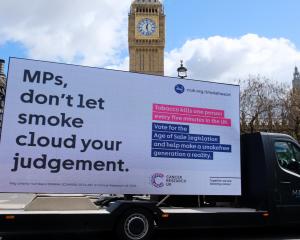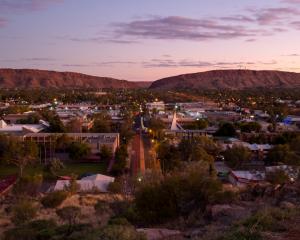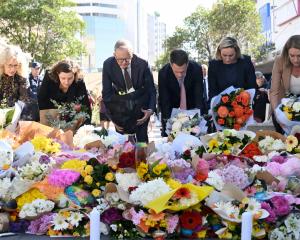Officials in Michigan issued dozens of marriage licenses to same-sex couples in hastily arranged, joyful ceremonies, a day after a federal judge struck down the state's ban on allowing gay couples to wed.
At least 50 people had lined up in the Oakland County clerk's office in Pontiac, on the outskirts of the Detroit metropolitan area, when Clerk Lisa Brown arrived to open it at 8am local time carrying a heart-shaped balloon.
Brown's staff was among workers in several counties who handed out paperwork to couples undeterred by the Michigan attorney general's immediate appeal of the judge's decision.
Frank Colasonti, 61, and James Barclay Ryder, 48, became the first gay couple to marry in the county. They wore dark suits, with "Same Love, Same Rights" lapel pins.
"We're going to celebrate with a nice quiet lunch and then go pick out our wedding rings," Colasonti said following the ceremony, which took place 26 years after they met at a church.
Moments later, a lesbian couple emerged from the ceremony room, filling the corridor with elated shouts. As more couples arrived, Brown moved the proceedings to an auditorium for a mass wedding ceremony of a dozen couples or more.
Clerics who support gay and lesbian rights also arrived and found quiet corners in the hallways to conduct private ceremonies for couples clutching their newly issued licenses.
Clerks in at least three other counties - Washtenaw, Ingham and Muskegon - opened outside normal business hours on Saturday to issue marriage licenses.
The Ingham County clerk's office said it issued at least 25 licenses. Lawrence Kestenbaum, the Washtenaw County clerk, said on his Facebook page that his office issued 74 marriage licenses before closing the door to new applicants at 1 p.m. on Saturday.
"Congratulations to each and every one!" he wrote.
Michigan's ban on same-sex marriages became law in 2004 as a state constitutional amendment. It was challenged by a lesbian couple from the Detroit suburb of Hazel Park after the law prevented them from jointly adopting each other's children.
On Friday, U.S. District Judge Bernard Friedman said the law breached equal protection rights guaranteed in the U.S. Constitution.
Bill Schuette, the state's attorney general, asked the U.S. Court of Appeals for the Sixth Circuit for an emergency order to stay the decision.
The court said on Saturday afternoon the plaintiffs' lawyers had until midday on Tuesday to file a response, making it unlikely a decision on the stay would be issued before then.
Brown, the Oakland County clerk, said the appeal was "a waste of taxpayer dollars."
"I'm no longer forced to discriminate in my office," she said. "Couples who have been waiting years to receive equal protection now have it."
If a stay is granted, same-sex couples marrying on Saturday could find themselves in legal limbo.
In December, a federal district judge in Utah overturned that state's ban on same-sex weddings and Utah's attorney general appealed.
Some 1,300 gay couples were married in Utah in the few weeks before the U.S. Supreme Court granted a stay while the appeal is considered, leaving the newlyweds uncertain about whether they have the rights generally afforded by marriage.
April DeBoer and Jayne Rowse, the couple who successfully challenged the Michigan ban, said on Friday they would not marry until the legal uncertainty in their state was resolved.
Seventeen states plus the District of Columbia now allow same-sex nuptials, a number that would be substantially increased if a series of recent court decisions in other states are upheld.
Supporters of the ban in Michigan, Utah and elsewhere have cited tradition, religious texts and the welfare of children to defend their belief that only opposite-sex marriage should be legal, arguments that several courts have ruled not sufficient.












